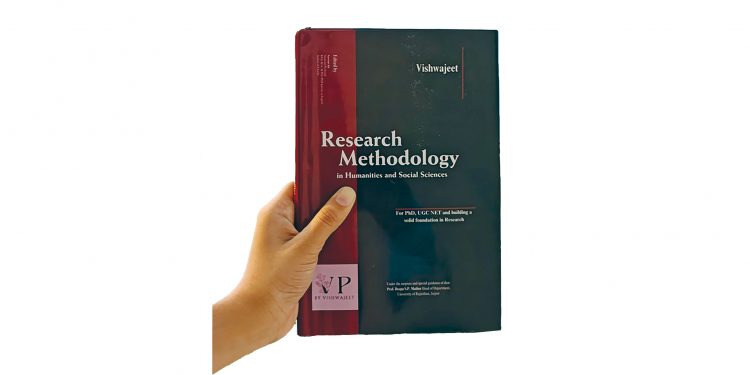The book stands out by being both learner- and teacher-centric, offering an efficient, no-nonsense approach to mastering research.
Research Methodology in Humanities and Social Sciences is a groundbreaking work, marking a first of its kind in research literature. After meticulously studying best-selling titles and undertaking top-tier international courses on academic writing and research, I crafted this book to fill a gap in accessible yet thorough research methodology guides.

The book stands out by being both learner- and teacher-centric, offering an efficient, no-nonsense approach to mastering research. It is designed to avoid the typical pitfalls of dense, jargon-heavy textbooks, focusing instead on clarity, conciseness, and quality over quantity. Every chapter is straight to the point, delivering core concepts without overwhelming the reader with unnecessary detail. Despite covering an expansive range of topics, it maintains a compact size due to its laser focus on essential information.
Divided into two sections—Learning and Writing—this book provides a comprehensive guide to both theoretical and practical aspects of research. Part I (Learning) delves into various research methods, tools, and techniques, offering unique examples for each from English literature and social sciences. It doesn’t stop at theory, though; at every critical stage, it provides actionable examples of methodologies that readers can apply in their own research. This approach makes complex ideas not just understandable but enjoyable to learn.
Part II (Writing) equips readers with practical tools for writing, editing, and publishing their work. This section breaks down the entire publication process, offering strategies for submitting to UGC Care-listed and SCOPUS-indexed journals. It introduces advanced resources to readers for using AI and citation tools ethically, making it one of the first books worldwide to offer detailed chapters on the ethical use of AI in academia. From literature reviews to journal scouting, this section guides readers through every step of the writing and publication process. The book takes a DIY approach in the II part, by providing a step-by-step guide to match abstracts, find suitable journals, scout UGC Care-listed and SCOPUS journals, approach editors, and finally publish in reputed journals of national and international repute. This not only makes learning fun but also enables the learn to publish articles and theses while having fun.
This book is a powerful resource for teachers in higher education, designed to inspire excellence in the classroom. It provides educators with engaging examples and practical exercises that not only enhance their own research but also help them deliver premium-quality lectures to students. By fostering an enthusiastic research environment, the book aims to elevate research standards and spark a passion for inquiry across borders, triggering a chain reaction of academic excellence.
This unique blend of practicality and innovation makes “Research Methodology in Humanities and Social Sciences” an essential tool for anyone serious about advancing their research journey.













